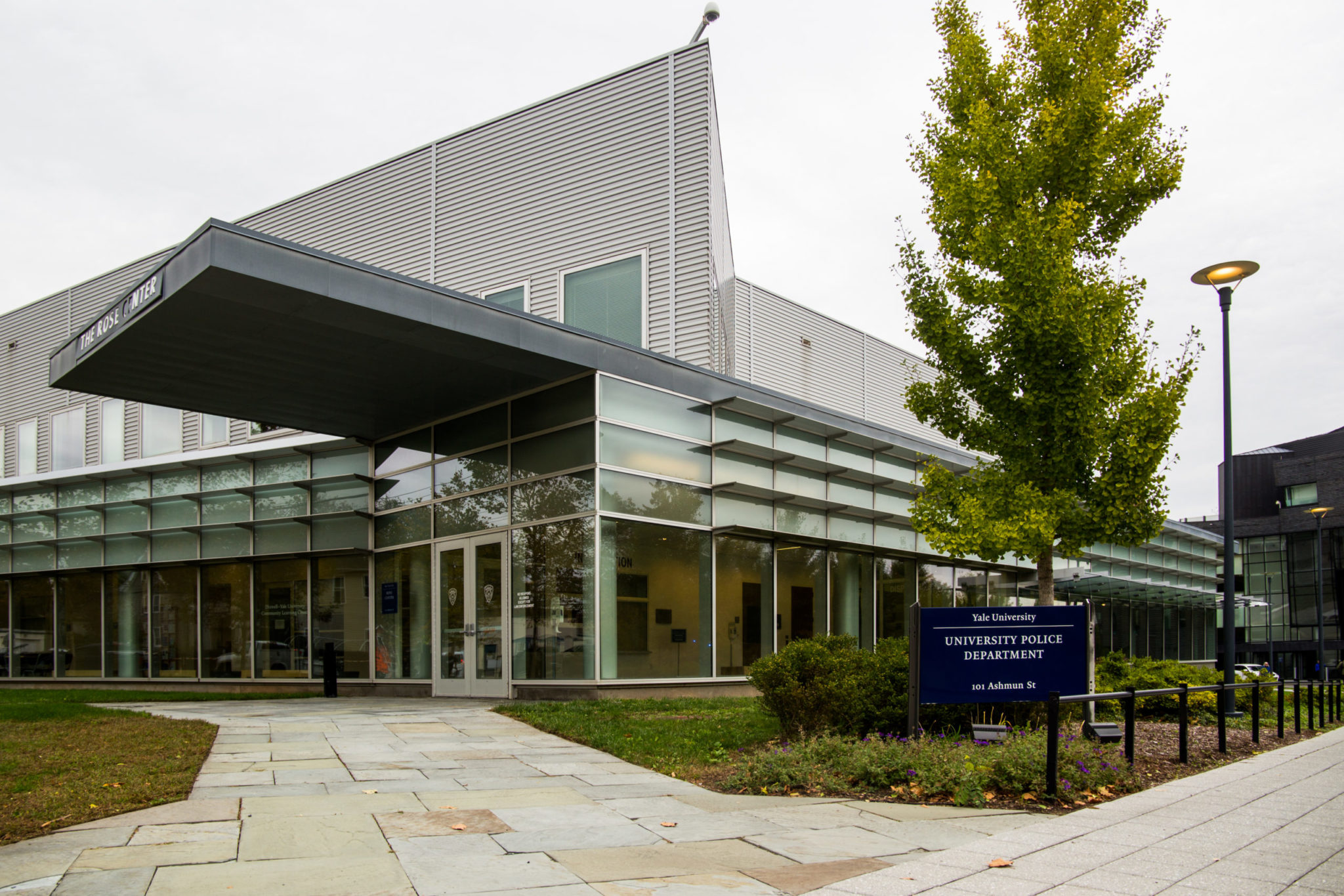Yale police clarify active shooter protocol as UVA shooting prompts concern
The death of three students in Virginia prompted grief on campus. Yale’s police chief expressed confidence in his department’s action plans, asserting that they would have in “all likelihood” prevented a similar situation at Yale.

Yale Daily News
A shooting at the University of Virginia on Nov. 13 left three UVA football players dead and two students wounded. The current suspect, Christopher Darnell Jones, was a member of the Virginia football team in 2018.
The University of Virginia was informed that Jones owned a gun in early September during a student affairs inquiry into a “potential hazing issue.” Jones, who was taken into custody on Tuesday, had also been convicted of a misdemeanor concealed weapons violation prior to the shooting.
At UVA, classes were canceled both Monday and Tuesday, but students continue to grieve the losses caused by the shooting, with a vigil planned for this Saturday. At Yale, students and administrators told the News that they share in this grief.
Sari Kaufman ’24, co-founder of Students Demand Action at Yale, was a sophomore at Parkland’s Marjory Stoneman Douglas High School during the shooting that killed 17 students in 2018. Now an advocate for gun regulations, Kaufman said the shooting is “another example” of the need for stricter gun laws on both a federal and state level.
“To see the shooting at UVA is not only traumatizing on a personal level for me as a survivor of gun violence but as a student on a college campus,” Kaufman said. “I think it raises the fear that this could happen anywhere.”
She also expressed grief for the UVA community and imparted advice based on her experience as a survivor of the Parkland shooting.
“I think the most important thing is to have self care and to remind yourself that it’s okay to feel the emotions of a trauma like that,” Kaufman told the News, “And if you have friends at UVA, to to be there for them because after going through something like that, it’s hard to find answers and it’s hard to go back to school after an event like that happens.”
Dean of Yale College Pericles Lewis said he has been reviewing Yale’s active shooter protocols with Vice President of Public Safety and Community Engagement Ronnell Higgins as well as Chief of Yale Police Department Anthony Campbell.
Lewis, in addition to Kaufman, also expressed shared grief for the UVA community, calling it “such an awful tragedy.”
Campbell told the News that, with the rise of mass shootings nationwide, what happened at UVA is not a shock.
“I wish I could say that what happened at UVA is a surprise,” Cambell said. “It’s not. It’s not because there have been 15 college campus shootings this year alone, not to mention the other active shooter situations that have happened around this nation. None of this is new, not only to us, in law enforcement, but anyone who’s a student in this country.”
To prepare for active shooter scenarios, Campbell told the News the response across Yale’s campus differs highly based on where you are at the moment. If such an incident were to occur, members of the Yale community would receive notifications and directions via Yale Alert. If students are in an area far from the shooter, they would be told to shelter in place, Campbell said, but if they are near the shooter, they should evacuate and run or hide if possible. If you get confronted and cannot run or hide, Campbell said to “fight.”
However, he emphasized everyone’s need to make a plan based on Yale’s active shooter protocol information video. The video teaches viewers not only how to protect themselves, but also to help deal with any medical emergencies when they arise in case medical officials cannot immediately access the site.
“If your first time you’re planning it out is when you hear the gunshots or when you get the alert from us, that’s really too late to plan,” Campbell said.
Campbell said recent shootings, especially those in Uvalde and Buffalo, have pushed the YPD to plan for training over 80 percent of their staff on active shooter protocols, and they hope to expand training for community members.
Already, Campbell said, per requests from the leaders of Slifka Center following the shooting at the Tree of Life Synagogue in Pittsburgh, the YPD has begun leading active shooter protocol training for students affiliated with Slifka.
While Campbell acknowledged that students may feel scared following the shooting, he said that the YPD actively works to identify potential mass shooters.
“I can tell you this. In the three and a half years that I’ve been with this department, I can say with a degree of confidence that we have, in all likelihood, prevented what could have been an active shooter situation on this campus,” Campbell told the News.
Campbell also added in an email to the News that success in identifying potential shooters is contingent on people sharing concerns with law enforcement, University administration and healthcare services. These resources can help the individual secure necessary help.
Therefore, he wrote that he encourages students to always report concerns as they come up.
“I implore each of you to keep in mind that if you see something with a fellow student, coworker or community member, please say something because you can save a life or many lives including your own,” Campbell wrote to the News, “Without this type of information and interaction people will fall through the cracks and bad things can happen.”
The Yale Police Department is located at 101 Ashmun Street.







